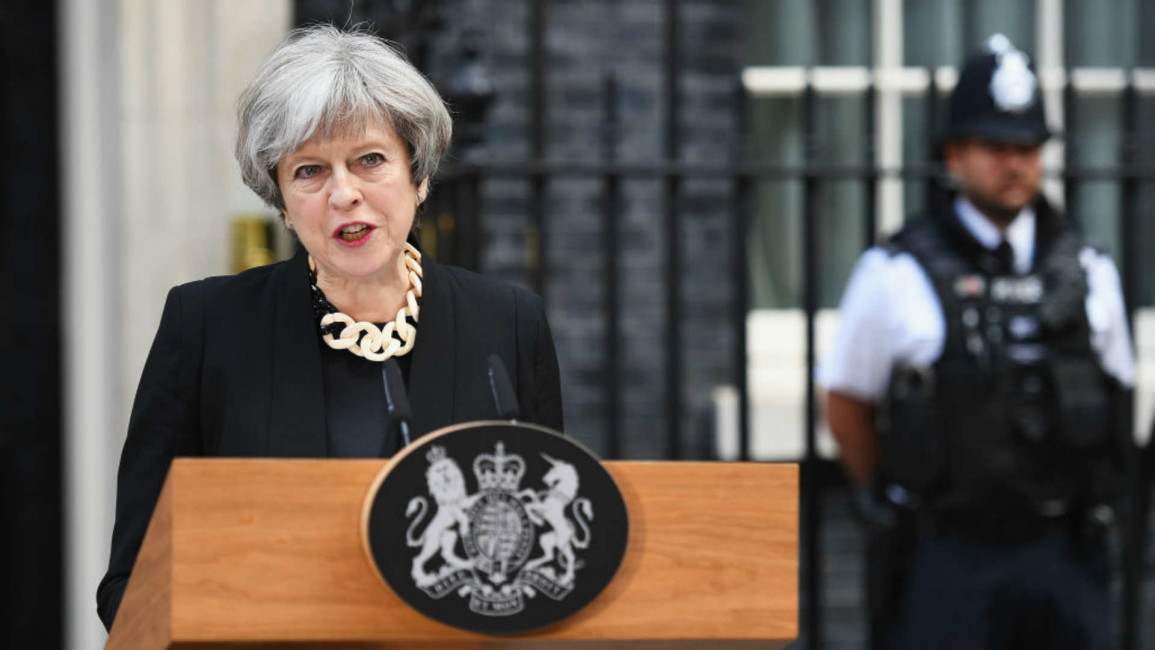
Theresa May's internet crackdown misses the point: It's brutal counter-revolution that allows extremism to thrive
Following the attacks in Manchester and London, the subject of "counter-terrorism" has once again taken centre stage, particularly the UK, which is coming to the end of a general election campaign.
Theresa May wants to blame the internet, claiming that it gives the ideology of terrorism the "safe space it needs to breed". She characteristically used the attacks to launch an Islamophobic attack on Muslim communities, claiming that there was "too much tolerance of extremism in this country".
Perhaps she missed the fact that members of the Muslim community in Manchester had reported the attacker Salman Abedi to the authorities no fewer than five times for his "extremist views"? Yet nothing was done. Indeed, the only "toleration" of Abedi's extremism was that of the British security services - who reportedly ignored warnings passed on to them from US intelligence agencies.
Her adversary, Jeremy Corbyn, on the other hand, has blamed May directly for the attack, saying to her in a speech that "you cannot protect the public on the cheap", referencing her decision to cut the number of police officers and his own commitment to increase police numbers.
But none of these points even come close to finding a solution to violent extremism, mostly because no such magic solution exists. One doesn't need to haunt the dark corners of the internet to find material that could be used for so-called "radicalisation". In the pages of UK's biggest newspapers, including The Daily Mail and The Sun - May's biggest fans - you'll find the actions of the Islamic State group covered in almost pornographic detail, invariably combined with general Islamophobia.
 |
Does May really believe that this information can be curbed by cracking down on the internet? |  |
Does May really believe that normal people can be turned into killers after watching videos of so-called "hate preachers"? Moreover, does she believe that this information can be curbed by cracking down on the internet? It's almost impossible to stop such information from being broadcast.
If the police can't stop child pornography from being hosted on the net, what chance do they have with IS propaganda?
Corbyn's solution of more police is as equally superficial. Does he believe that more police in Littleton, Colorado would've stopped the Columbine massacre? Or that more police on the streets would stop any of these kinds of instances of violence? Does any politician believe that the state having more powers of surveillance or gathering info will stop acts of murder?
 |
|
| Christians in Egypt mourn the victims of an IS attack in the Minya town of Maghagha, 26 May 2017 [AFP] |
And this is the main point - these criminal acts, like murder or sexual assault, are almost impossible to prevent.
From what we know of both the London and Manchester attacks, they appear to have been hastily conceived and carried out swiftly. There were no grand plots, but even if there were, at the point of someone deciding that they want to carry out such an attack, it'll only be luck or their own conscience that stops them.
What (nearly) everyone agrees on is that there is a "foreign" component to these attacks. While there is a multitude of factors that might lead to an individual deciding to commit this kind of murder - factors that seem to have more in common with the Columbine killers or Adam Lanza than anything specifically to do with religiosity - there's no doubt that the very presence of the IS "caliphate" serves as an inspiration for the things that underpin it - sectarian violence and general brutality.
This is how it was made, and this is how it projects itself.
 |
If the police can't stop child pornography from being hosted on the net, what chance do they have with IS propaganda? |  |
Theresa May got this part right, saying: "terrorism breeds terrorism and perpetrators are inspired to attack, not only on the basis of carefully constructed plots after years of planning and training, and not even as lone attackers radicalised online, but by copying one another and often using the crudest of means of attack".
| Read more: IS claim responsibility for massacre of Egyptian Christians | |
But May then went on to say that this meant "taking military action to destroy ISIS in Iraq and Syria". That clearly isn't working inasmuch as keeping the streets of Britain safe. One line of thought would have you believe that these attacks represent IS in its death throes, due to advances being made against it by the Turkish-backed Syrian rebels and the Kurdish YPG in Syria, and the Iraqi government and its allied Shia militias in Iraq. However, it seems the opposite is true.
In Egypt, IS is going from strength to strength, with recent deadly high-profile attacks - not in far away Sinai, but right in the heart of Egypt, such as the recent attack on Christians in Minya. In Iraq, 17 people were murdered as the group launched an attack on an ice-cream shop in central Baghdad.
IS might find itself being pushed back militarily, but its logics are not only still firmly intact, they are being bolstered by the very forces that allegedly seek to destroy them.
And it's the logics, beyond videos on internet sites or radical preachers, that are visible for almost everyone in the world to see - to Muslims, they are even more striking. IS is a product of counter-revolution - an active symptom of savage destruction of hope. If the Arab revolutions represented progressive antagonism towards a regional order determined by the brutal denial of basic liberties, IS are fed by the brutal backlash against this.
 |
IS are a product of counter-revolution - an active symptom of savage destruction of hope |  |
This is true whether it's Assad, Iran and Russia's sectarian genocide in Syria, or Sisi's brutal crackdown on democratic opponents in Egypt.
Though it's convenient to say that it was the Iraq war that birthed IS, the US-sponsored Awakening Movements, who were Sunni insurgents employed to fight the cancer of al-Qaeda that had grown in Iraq due to the invasion and occupation, had reduced the forces that would become IS to a near-insignificant rump by 2008.
It was only through the Iraqi government's sectarianism, and then the brutal war in Syria, that IS could rise in their current form, exploiting Assad and Iran's sectarian war in Syria to push their own brand of fascistic sectarian politics that fed into their "caliphate". We know that Assad cultivated IS both to use them against the rebels and to justify his brutality to the world.
| Read more: The poisonous 'peace process' is an insult to Syrians | |
But, as with the Awakening Movements which drove the predecessors of IS out of their communities, the rise of IS in Syria was not an inevitability. For years the Syrian rebels were an overt alternative to IS and launched the first full-scale offensive against them in 2014, with Islamic rebels, such as Ahrar al-Sham, combining with the Free Syrian Army to try to drive them out.
The rebels were crying out for support to fight against the symbiotic evils of Assad and IS, but the world turned a blind eye, and IS eventually overran rebel positions - this paved the way for their Mosul offensive and the birth of their "caliphate".
 |
It is spaces of brutal counter-revolution and sectarianism that allow IS to thrive |  |
Ian Kershaw, the historian of Nazism, developed the concept of "working towards the Fuhrer" to describe the phenomenon of Nazis putting ideology into practice without official diktat from Hitler - we could say that the attackers in Manchester and London are simply "working towards the caliphate".
They're not taking orders, they're just sympathisers who are putting into practice the Islamic State group's ideological and strategic modus operandi.
While some would so sinisterly have you believe that the freedom of Arab Muslims is itself the root cause of IS, with the term "ungovernable spaces" being code for areas where tyrants have been overthrown, the truth is that it is spaces of brutal counter-revolution and sectarianism that allow IS to thrive.
The current strategy is for the US-led coalition to brutally bomb IS-held civilian areas, while giving free rein to brutal ground forces. Given the bombing is leading to increasing numbers of civilian casualties, it seems that IS ideology is going nowhere.
The idea that IS can be contained by bolstering regional brutality misses the fact that they were born of such brutality - unleashed in unprecedented form by the active violence of counter-revolution, whether their birth in Assad's Syria or their rise in Sisi's Egypt.
Even more importantly, if Assad, Iran and Russia can continue to commit genocide uninterrupted, and the more IS ideology is reproduced, more and more people around the world will be working towards the caliphate.
Sam Hamad is an independent Scottish-Egyptian activist and writer.
Opinions expressed in this article remain those of the author and do not necessarily represent those of The New Arab, its editorial board or staff.




